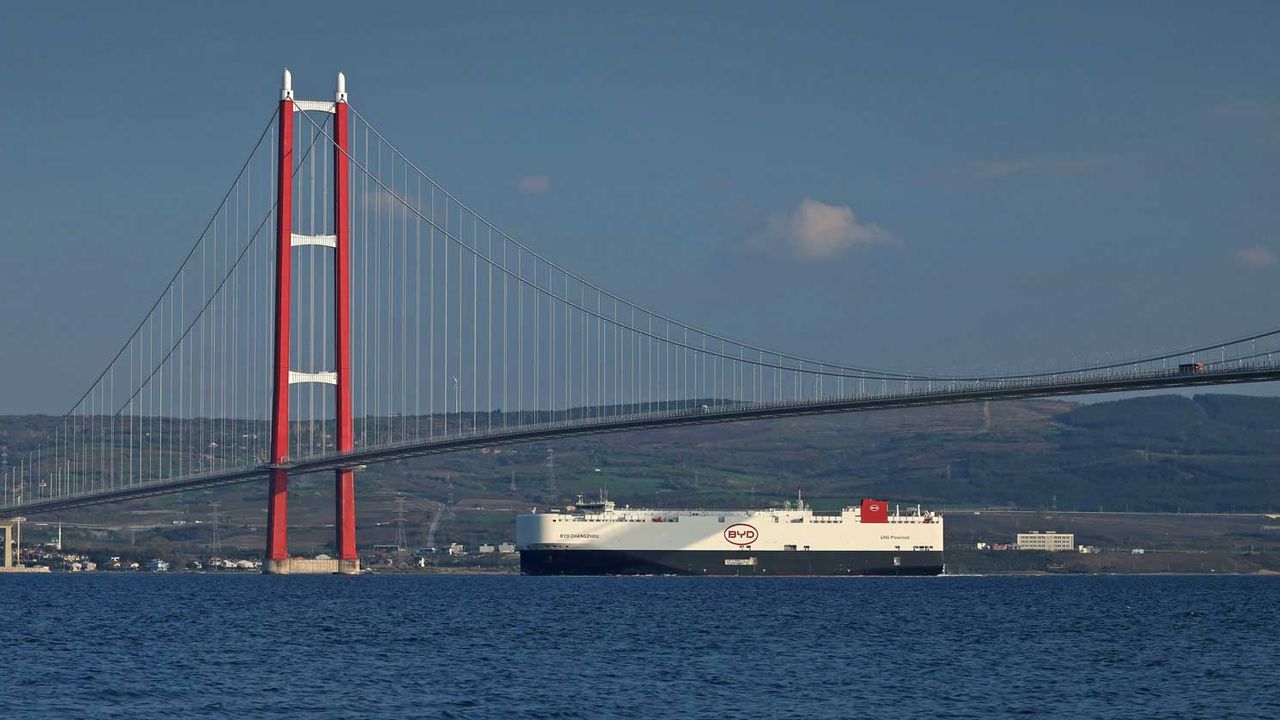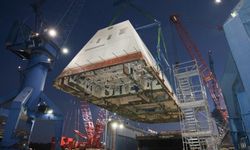The ship delivered approximately 7,000 electric vehicles, strengthening BYD’s growing presence in the Turkish automotive market.
The BYD CHANGZHOU departed from the Port of Ningbo, China, on February 25, 2025, completing a 39-day journey. Measuring 199.9 meters in length and 38 meters in width, the vessel drew attention as it transited Turkish waters, passing notable landmarks such as the Osmangazi Bridge and the newly built bridge in Çanakkale. Images and videos of the vessel quickly spread across Turkish media and social media platforms.
According to Anadolu Agency, the ship has a gross tonnage of 69,250 and a net tonnage of 21,400. It is equipped with a dual-fuel propulsion system utilizing liquefied natural gas (LNG), supporting reduced emissions in line with BYD’s sustainability goals.
This maritime shipment follows BYD's $1 billion investment agreement signed with the Turkish government in 2024. The agreement includes the construction of a production facility in Manisa, scheduled to start operations in 2026, with an annual capacity of 200,000 plug-in hybrid and fully electric vehicles.
BYD’s increased activity in Türkiye comes as the company navigates a 17% import tariff on Chinese electric vehicles entering Europe. The strategic positioning of production and logistics operations in Türkiye allows BYD to strengthen its supply chain and reduce operational challenges.
As of Q1 2025, BYD is one of the fastest-growing automotive brands in Türkiye. The company recently introduced the TANG model, expanding its product portfolio to seven models in the country. New launches such as the DOLPHIN Comfort trim and SEALION 7 are expected later this year.
BYD became the first global automaker to cease fossil fuel vehicle production in 2022. The company also holds the record for producing 10 million electric and hybrid vehicles, with the second half achieved in just 15 months. In 2024, BYD sold more than 4 million new energy vehicles globally.
Industry forecasts by S&P Global Mobility indicate that BYD’s European sales could increase from 83,000 units in 2024 to 186,000 in 2025, potentially reaching 400,000 by 2029.
BYD’s presence in Türkiye is part of a broader trend, as other Chinese manufacturers such as Chery also explore investment opportunities there. Discussions on establishing local manufacturing facilities are ongoing, further positioning Türkiye as a regional hub for electric vehicle logistics and production.
The docking of BYD CHANGZHOU at Safiport highlights the increasing importance of maritime logistics in the global electric vehicle supply chain. As EV demand rises, Türkiye’s strategic location continues to attract major industry players seeking efficient transport and distribution networks.






